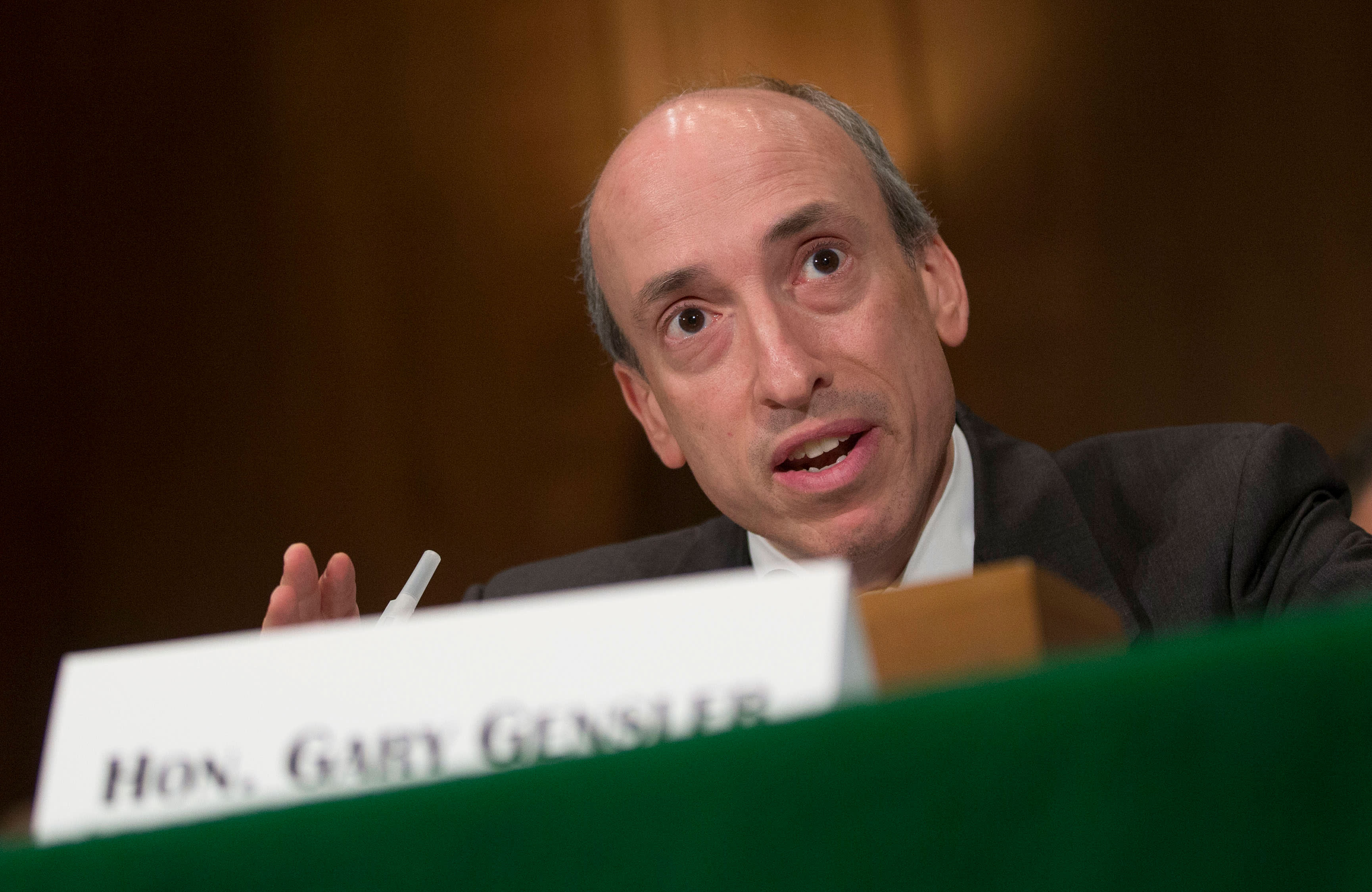Gary Gensler will lead the Securities and Exchange Commission after the Senate voted 53-45 on Wednesday to confirm his nomination to the nation’s top financial regulator.
Gensler, chosen for the role by President Joe Biden, will now play a key part in enforcing and drafting the rules that govern Wall Street, investors and a wide range of other financial entities.
Now, with the SEC commissioners possessing a 3-2 Democratic majority, Gensler will likely have a long to-do list after he settles in to his new job.
Progressives expect the 63-year-old to follow through on his promises to look into a range of topics, including digital currencies, the GameStop trading mania and how corporate America prioritizes environmental, social and governance issues.
Sen. Sherrod Brown, the chairman of the Senate Banking Committee, was quick to offer praise for Gensler following the vote.
“Mr. Gensler will lead the SEC at a time when it’s become more and more obvious to most people that the stock market is detached from the reality of working families’ lives,” Brown, D-Ohio, said in a statement. ”Mr. Gensler will bring the SEC’s focus back to the people who make this country work and push to ensure that markets are a way for families to save and invest for their kids’ education, a down payment on a home, and for a secure retirement – not a game for hedge fund managers where workers always lose.”
Gensler, a former Goldman Sachs executive is perhaps best known in Washington for his unyielding work at the Commodity Futures Trading Commission, where he devised the regulatory framework for multitrillion-dollar derivatives market.
Democrats and Republicans alike asked Gensler in March on whether he would scrutinize payment for order flow and game-like tactics used by brokerages use to entice customers to their platforms. Both subjects received attention on Capitol Hill this year after January’s wild trading in GameStop, AMC Entertainment and other stocks.
Gensler also noted potential problems with the current structure of payment for order flow, a common practice on Wall Street whereby trading firms, like Citadel Securities, pay companies to send them their customers’ orders for execution.
Asked how the SEC should regulate bitcoin and other digital assets, he replied that the responsibility could fall across the government depending on how assets like bitcoin are classified. One of his earliest and most-anticipated decisions as head of the SEC will be whether to allow the creation of a bitcoin exchange-traded fund.
Ranking member Sen. Pat Toomey, R-Pa., in March asked for Gensler’s thoughts on Nasdaq’s push to increase diversity on corporate boards.
Republicans have decried a recent plan submitted by the exchange operator to the SEC that would require the thousands of companies listed on its stock exchange to include women, racial minorities and LGBT individuals on their boards.
Gensler replied by touting the benefits of diversity more broadly and among the ranks at the SEC.
This is breaking news. Please check back for updates.
